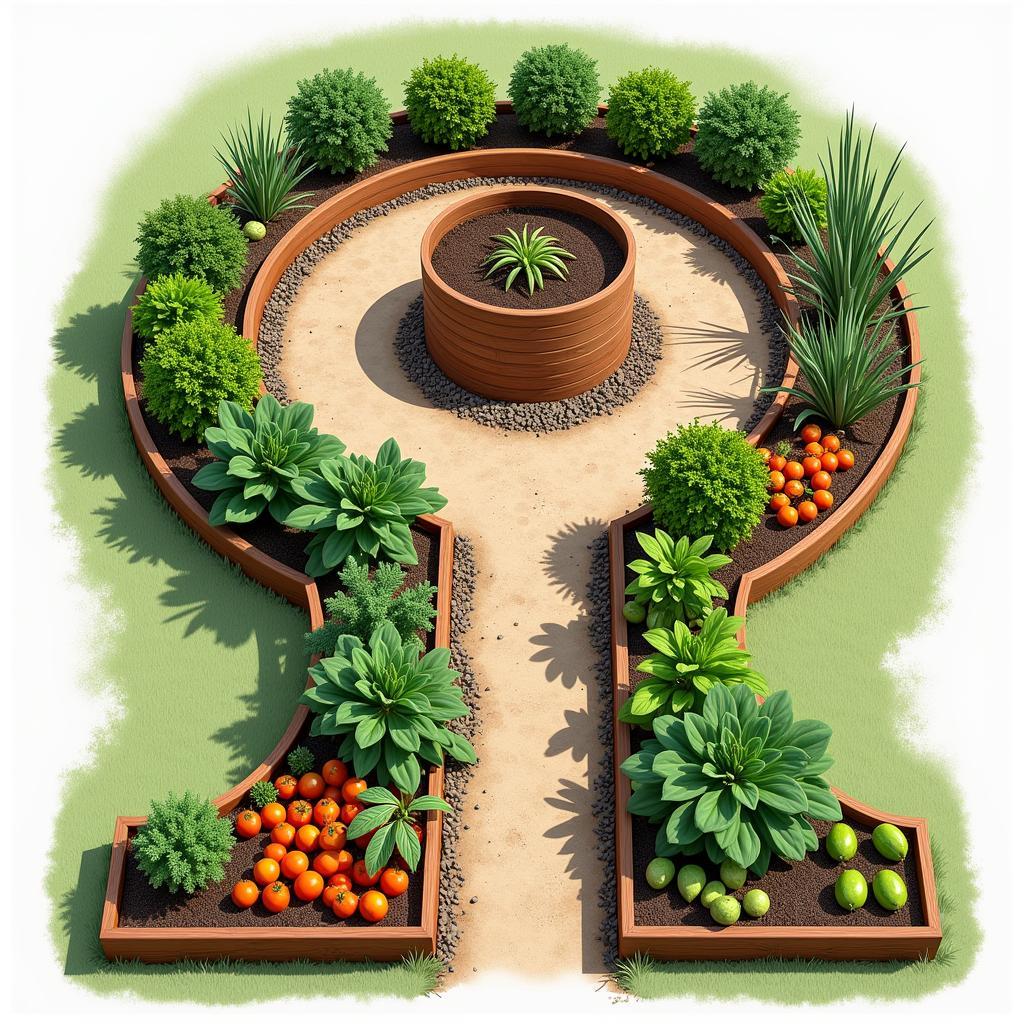Celebrating Life: Exploring African Birthday Traditions
African Birthday Traditions are as diverse as the continent itself, a vibrant tapestry woven from ancient beliefs, cultural nuances, and heartfelt celebrations of life. While the concept of a birthday might seem universal, the way it’s observed across Africa reflects a profound connection to ancestry, community, and the spiritual realm.
The Significance of Birthdays in African Cultures
In many African cultures, birthdays are seen as more than just marking another year of life. They are a powerful reminder of one’s ancestral lineage, a celebration of the day a spirit joined the physical world, and an opportunity to give thanks for the gift of life and blessings received.
It’s not uncommon for birthday celebrations to be intertwined with spiritual rituals and offerings to ancestors, acknowledging their continuing presence and influence in the lives of the living. These rituals vary significantly across different regions and ethnic groups, but often involve libations, prayers, and offerings of food and drink.
Traditional Practices and Customs
The way African birthday traditions manifest themselves is incredibly varied, each region boasting unique customs that have been passed down through generations. In some communities, the day of the week a child is born holds special significance, influencing their personality and destiny. For example, children born on Mondays in certain West African cultures are believed to be gentle and peace-loving.
Traditional clothing, music, and dance play integral roles in many African birthday celebrations. Brightly colored fabrics, intricate beadwork, and symbolic adornments often feature prominently, reflecting cultural identity and heritage. Rhythmic drumming, vibrant singing, and energetic dancing create a joyous atmosphere, inviting everyone to participate in the festivities.
Food is another cornerstone of African birthday celebrations, symbolizing abundance, hospitality, and communal bonding. From hearty stews and flavorful rice dishes to grilled meats and freshly harvested produce, the feast prepared for a birthday celebration often features an array of traditional delicacies. These dishes are not only meant to satisfy hunger but also to express love, care, and a shared sense of community.
You might be interested in learning more about African birth signs and their significance in celebrating birthdays.
Coming of Age Rituals: Marking the Transition to Adulthood
Birthdays marking significant milestones, particularly the transition from childhood to adulthood, often involve elaborate rituals and ceremonies. These rites of passage vary significantly across different African cultures but often involve tests of strength, endurance, or knowledge.
For young women, these ceremonies might involve learning traditional skills like cooking, farming, or weaving, as well as receiving guidance on marriage and motherhood. Young men might undergo initiation rituals that test their bravery, hunting skills, or knowledge of tribal customs. These coming-of-age ceremonies are not merely celebrations but serve as transformative experiences, formally integrating young people into the community as responsible adults.
Modern Influences and Adaptations
While traditional practices remain deeply ingrained in many parts of Africa, modern influences have inevitably led to adaptations and evolving traditions. Urbanization, globalization, and exposure to different cultures have influenced how some Africans celebrate birthdays, particularly in urban settings.
The influence of Western birthday traditions, such as birthday cakes, candles, and gift-giving, has become increasingly common, often blending with existing African customs. However, even in these modern adaptations, the core values of family, community, and gratitude for life remain central.
Frequently Asked Questions about African Birthday Traditions
What is the most common gift for African birthdays?
Gift-giving practices vary widely. However, practical gifts that are useful in daily life, such as clothing, household items, or tools, are often favored. Money or contributions towards the celebration are also common.
Are there specific foods associated with African birthdays?
While it varies, many cultures have specific dishes considered celebratory. These often include special stews, rice dishes, or breads made with symbolic ingredients.
How long do African birthday celebrations typically last?
Celebrations can range from intimate family gatherings to large community events lasting for several days, especially for milestone birthdays.
Do all African cultures celebrate birthdays in the same way?
No, the continent’s diversity is reflected in its birthday traditions. Each ethnic group and region has its own unique customs and rituals.
What is the significance of ancestors in African birthday traditions?
Ancestors are highly revered in many African cultures. Birthday celebrations often involve honoring them and acknowledging their continued presence in the lives of the living.
Need More Information on African Culture?
Interested in exploring more about African culture? Check out our articles on African American happy birthday and African daisy symbolism. You can also learn about African cute baby girl images or discover if African babies walking early is a common phenomenon.
Contact Us
For inquiries or assistance, please contact us via:
- Phone: +255768904061
- Email: [email protected]
- Address: Mbarali DC Mawindi, Kangaga, Tanzania
Our dedicated customer support team is available 24/7 to assist you.
